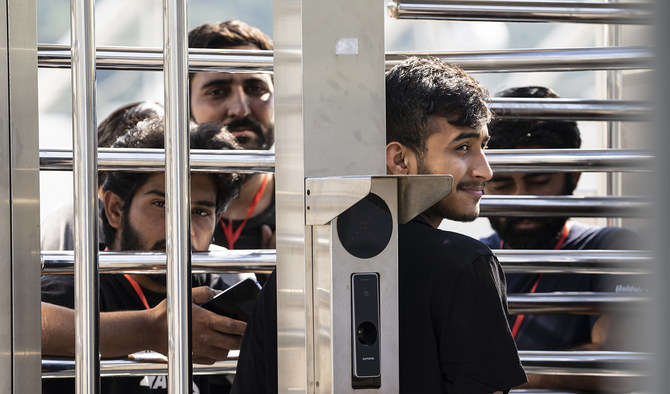ISLAMABAD: Pakistan's Interior Minister Rana Sanaullah said on Friday that around 350 Pakistani citizens were aboard the vessel that capsized in the Mediterranean Sea off Greece on June 14 and only 12 of them have survived so far, adding that the death toll could be "very high" given the numbers.
According to survivor accounts, as many as 750 people, mostly from Syria, Egypt and Pakistan, were crammed into the boat despite it running out of capacity. Greek authorities said that only 104 people have survived the accident, while rescuers have so far managed to recover only 82 bodies.
Speaking on the floor of parliament on Friday, Sanaullah said the boat had the capacity of carrying only 400 people, but more than 700 individuals were forcibly accommodated onto the vessel by human smugglers.
“According to the information we have received so far, there were 350 Pakistanis aboard that vessel, while only 12 Pakistanis have been identified among the 104 survivors,” the interior minister said.
“The loss of lives could be very high. So far, only 82 dead bodies have been recovered, their specimens have been obtained, and the identification process is being carried out through forensic laboratories and NADRA (National Database and Registration Authority) records.”
He said a total of 281 Pakistani families had reached out to the government, saying that their loved ones were aboard the ship.
“We have so far collected 193 DNA samples and tireless efforts are being made to transport the bodies to Pakistan as soon as the identification process is completed,” Sanaullah said.
The minister informed the lawmakers that a high-level committee had been set up upon the direction of the prime minister to thoroughly investigate the matter.
The committee was tasked with acting against human traffickers and suggesting amendments to the existing law to punish the perpetrators of the Greece shipwreck, according to Sanaullah.
He said 99 percent of the Pakistanis who boarded the vessel left the country through "legal means," explaining that the passengers were offered to take one of the three routes to Europe — Egypt, Libya or the UAE.
“So, when they left Pakistan, they went legally but once they reached the [aforementioned] countries, they adopted illegal means to further their journey to Europe,” he said.
"We have seen that men aged 18 to 22 years, who do not own any businesses, were issued visas by these countries, so we are raising the issue with the respective states to impose some restrictions and have some standards in place as to who gets a visa."
The committee, he said, would soon come up with detailed, comprehensive recommendations that would be subsequently approved by the government, after which the existing anti-human trafficking laws, which have some loopholes, would be amended.
According to the United Nations, nearly 1,000 migrants have either died or gone missing while trying to reach the European shores in rickety boats this year. In January, the Pakistani government confirmed nine Pakistani citizens died in two separate shipwrecks in Italy and Libya.















